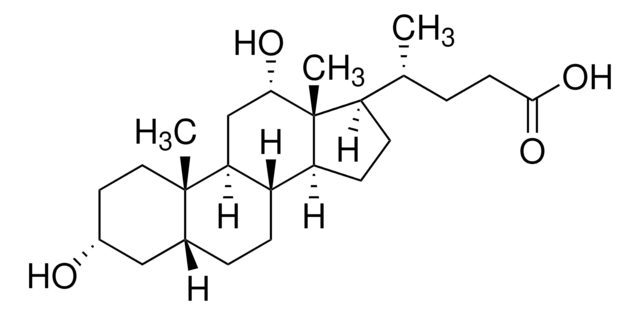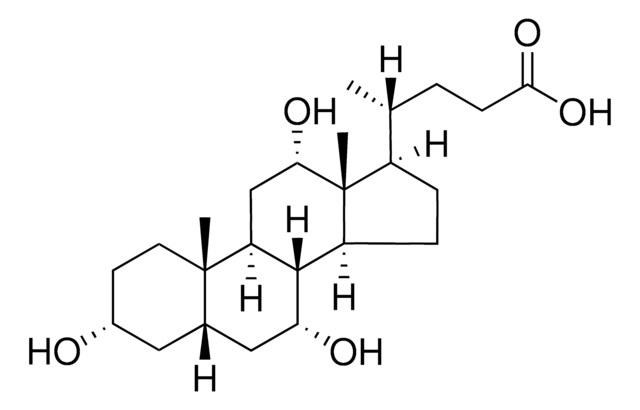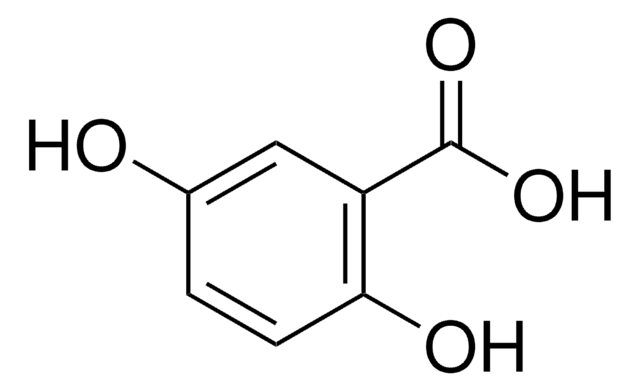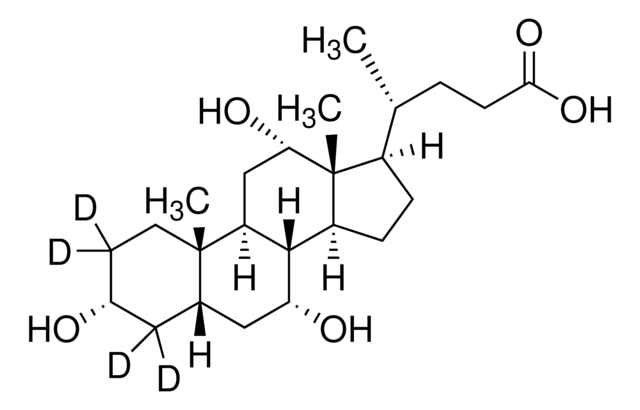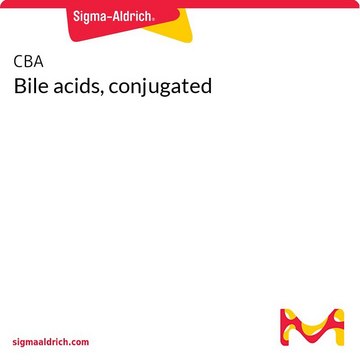C1129
Cholic acid
from bovine and/or ovine, ≥98%
Sinónimos:
3α,7α,12α-Trihydroxy-5β-cholanic acid, Cholanic acid
About This Item
Productos recomendados
biological source
bovine and/or ovine
description
anionic
assay
≥98%
form
powder
mol wt
408.57 g/mol
mp
200-201 °C (lit.)
functional group
carboxylic acid
shipped in
ambient
storage temp.
room temp
SMILES string
[H][C@@]12C[C@H](O)CC[C@]1(C)[C@@]3([H])C[C@H](O)[C@]4(C)[C@]([H])(CC[C@@]4([H])[C@]3([H])[C@H](O)C2)[C@H](C)CCC(O)=O
InChI
1S/C24H40O5/c1-13(4-7-21(28)29)16-5-6-17-22-18(12-20(27)24(16,17)3)23(2)9-8-15(25)10-14(23)11-19(22)26/h13-20,22,25-27H,4-12H2,1-3H3,(H,28,29)/t13-,14+,15-,16-,17+,18+,19-,20+,22+,23+,24-/m1/s1
InChI key
BHQCQFFYRZLCQQ-OELDTZBJSA-N
Gene Information
human ... CYP1A2(1544)
¿Está buscando productos similares? Visita Guía de comparación de productos
Categorías relacionadas
General description
Application
Biochem/physiol Actions
Related product
Storage Class
11 - Combustible Solids
wgk_germany
WGK 2
flash_point_f
Not applicable
flash_point_c
Not applicable
ppe
Eyeshields, Gloves, type N95 (US)
Certificados de análisis (COA)
Busque Certificados de análisis (COA) introduciendo el número de lote del producto. Los números de lote se encuentran en la etiqueta del producto después de las palabras «Lot» o «Batch»
¿Ya tiene este producto?
Encuentre la documentación para los productos que ha comprado recientemente en la Biblioteca de documentos.
Los clientes también vieron
Protocolos
This method is particularly useful in research into the role of individual bile acids as signaling molecules; suitable for clinical laboratories to investigate potential mechanisms linked to gut hormone profiles and glycemic control.
Contenido relacionado
Bile Acids (BA) are synthesized in the liver and play important roles in cholesterol homeostasis, absorption of vitamins and lipids, and various key metabolic processes.
Nuestro equipo de científicos tiene experiencia en todas las áreas de investigación: Ciencias de la vida, Ciencia de los materiales, Síntesis química, Cromatografía, Analítica y muchas otras.
Póngase en contacto con el Servicio técnico

